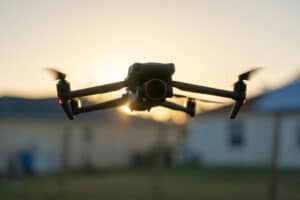The private investigator has three methods for direct interviews available today: Phone, in person, and video chat. Which method is best can depend on the situation and additional circumstances (lockdown orders from COVID-19, for example, are quickly changing PI interview strategies around the world these days). Let’s take a look at these options and their pros and cons for different investigations.
Phone
Phone calls are an obvious communication option, but they are usually used to set up interviews, not to conduct the interview itself. However, phone calls can replace in-person interviews in the right circumstances, but there are several important things to keep in mind.
Quick and Efficient
The key advantage of phone-based interviews is that they are fast and excellent for getting specific types of data quickly. Basic details are easy to acquire with just a few questions, allowing the investigator to move on to the next step. This is also why phone calls are a good choice for interviewing many people within a short period of time. If a PI needs to ask a hundred different people the same question to follow a lead or get a good idea of what happened, phone calls are typically the default option.
Cost Effective
Phone calls are also very cost effective from the client’s perspective. They require relatively little manpower, no specialized tools, and less time than trying to interview in person. This all adds up to lower fees for the client, which could be a priority based on the situation. Consider phone calls an alternative to any interview process when saving money is key.
Creating a Baseline is Important
One disadvantage with a phone call interview is that it can be impersonal and poor at uncovering falsehoods or deception, which is why investigators often prefer in-person interviews for certain types of cases. However, you can still get a lot of info over the phone with the right approach: Focus on first forming a rapport and asking simple questions about names and livelihood. This creates a baseline that can be especially useful to the attentive investigator when asking more challenging questions later on and comparing tone, length, and nature of responses.
Privacy is Key
Always keep in mind privacy issues when dealing with phone interviews. With an in-person interview, it’s easy to arrange privacy, but privacy may not be guaranteed with a phone interview. Also keep in mind your state laws regarding privacy if you plan on recording the phone interview.
In Person
There are good reasons that in person interviews are the traditional method for PIs to collect information or verify accounts. They have many advantages when it comes to successful interviews, but there are also unique challenges involved (pandemic lockdowns aside). Here’s what to consider.
More Direct Information
Many PIs like in person interviews for how much information they can glean. This method is a great way of spotting deception or drilling down to specific details when necessary. They can be pre-arranged for more lengthy, in-depth interviews or used to catch interviewees off guard as needed. However, conducting in person interviews also takes practice and experience, as well as knowledge of best practices in the PI industry.
Easily Combined with Other Investigative Tasks
If a lot of footwork is involved in a particular case, in person interviews combine well with other types of exploration or surveillance. It could be more effective to interview people at a particular location based on what you find, rather than trying to get details over the phone.
Most Costly Option
In person interviews do take time and effort, which tends to mean higher costs for the client. Make sure that clients understand that conducting these interviews will take significant manhours, which translates into higher costs for the investigation.
Duress is a Greater Risk
If an in-person interview is being used to collect evidence, it’s particularly important to make sure the interview is conducted fairly, in a proper setting, and with no pushy tactics. Investigators must avoid anything that could be used to claim duress later.
Video Interviews
Today video conferences are easier to arrange than ever before. Skype, Zoom, and many casual services make these interviews effortless to arrange, conduct and record if necessary. More professional video services can add extra security or compatibility with specific systems if necessary.
More In-Depth Than Phone Interviews
Video interviews aren’t the same as interviews in person, and the limits of technology are very noticeable, but they is a medium ground between phone and in person methods. If in person interviews are not an option, moving to a video interview may be more valuable to the investigation than a phone interview. This is especially true if there are documents or photos to be shared, or if simply seeing someone’s face is an important aspect.
Can Be Difficult to Arrange
Unlike a phone call, you can’t pick up a video interview and dial the right number. These interviews must be pre-arranged with introductions and invitations. That means it can be exceedingly difficult to interview people who don’t want to talk to you. Video interviews are often best suited to situations where the interviewee agrees to a full interview ahead of time.
Can Be a Precursor to Court Video
Court systems support a variety of video options for testimony, which means that this method of interviewing may be particularly useful when preparing a witness to give evidence in court or similar situations.
Final Thoughts
Remember, depending on the interview, you can send your intended questions prior to the interview to make any format a bit easier for people to deal with. Keep your interview skills sharp and shifting between formats based on your needs will be much easier!






